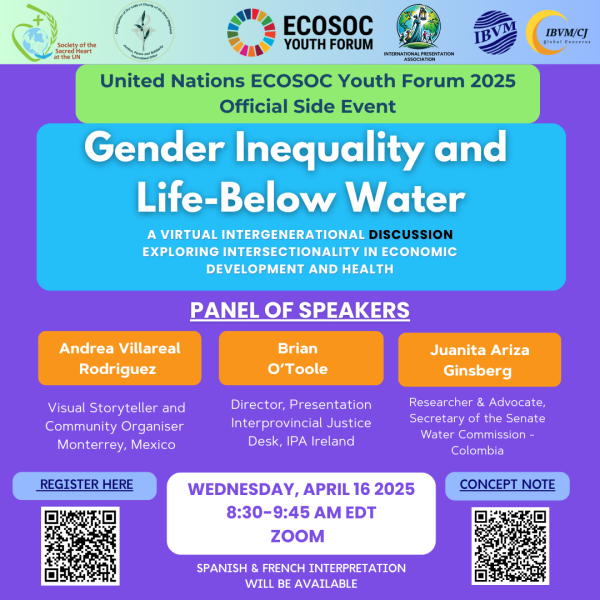Gender Inequality and Life Below Water - A Virtual Panel Discussion Exploring Intersectionality in Economic Development and Health

According to UN Women, almost a billion people (12% of the global population) rely on ocean, seas and marine resources. However, marine-related work perpetuates gender biases. Men tend to fish and be in charge of hydroculture while women, particularly young girls, are responsible for low-paying and low-skilled work such as marketing and fish processing. The scarcity of marine resources caused by their exploitation and climate change worsens women’s working conditions and income. Furthermore, water contamination and loss of marine biodiversity affect women in terms of higher illnesses and food insecurity than men and worsen their care burdens. Thus, climate change in life below water (oceans, seas and marine resources) negatively impacts women’s physical and mental health. To achieve solutions, women and youth should be at the centre of debates and decision-making, which is our event’s objective.
Organized by: Institute of the Blessed Virgin Mary-Loreto Generalate, International Presentation Association, Society of the Sacred Heart and Congregation of Our Lady of Charity of the Good Shepherd